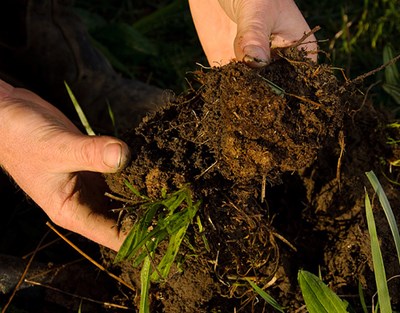The event focussed on the 3 main elements of soil health, chemical, biological and physical and how soil management can impact and modify these properties. Liz Stockdale emphasised the importance of using visual soil assessments and soil sampling results, to ascertain textural quality alongside nutrient levels. She also outlined some of the new measures of soil biology such as soil microbial diversity which are key to understanding how healthy soils, indicating that these were likely to be used more widely in the future. Liz explained the work of the BBRO and AHDB Soils Health project which she is leading and how growers could interact.
David Clarke spoke about the New Farming Systems Experiments being delivered at Morley by NIAB, including long term tillage and amendment trials. He encouraged growers to carry out their own split trials to measure any yield improvements; stressing the importance of all results even when the outcome is ‘no difference’.
PlantWorks Ltd is a relatively new company investigating the use of selected micro-organisms in agriculture. Jamie Stotzka explained how the beneficial microbes could be applied in commercial farming practices and how they interact in the soil in a mutually beneficial transaction.
Microbial interactions were also the main topic of discussion from Dr Lydia Smith; who is based at the NIAB Innovation Farm and Agri-tech Innovation Hub. Her work includes close inspection and monitoring of 6 farms in the Eastern Region. Lydia also mentioned her work with integration of sheep and leys into arable rotations.
The event was chaired by Dr Simon Bowen, who explained why BBRO has invested in this area and the potential impact of soil improvements on all crops, not just sugar beet. He reminded the growers of the importance of beet as part of the rotation, and the need for a holistic view of cropping systems and cultivations.
A number of the topics covered can be seen in action on the BBRO Demonstration Farms.
To view all the presentations – please click here.




